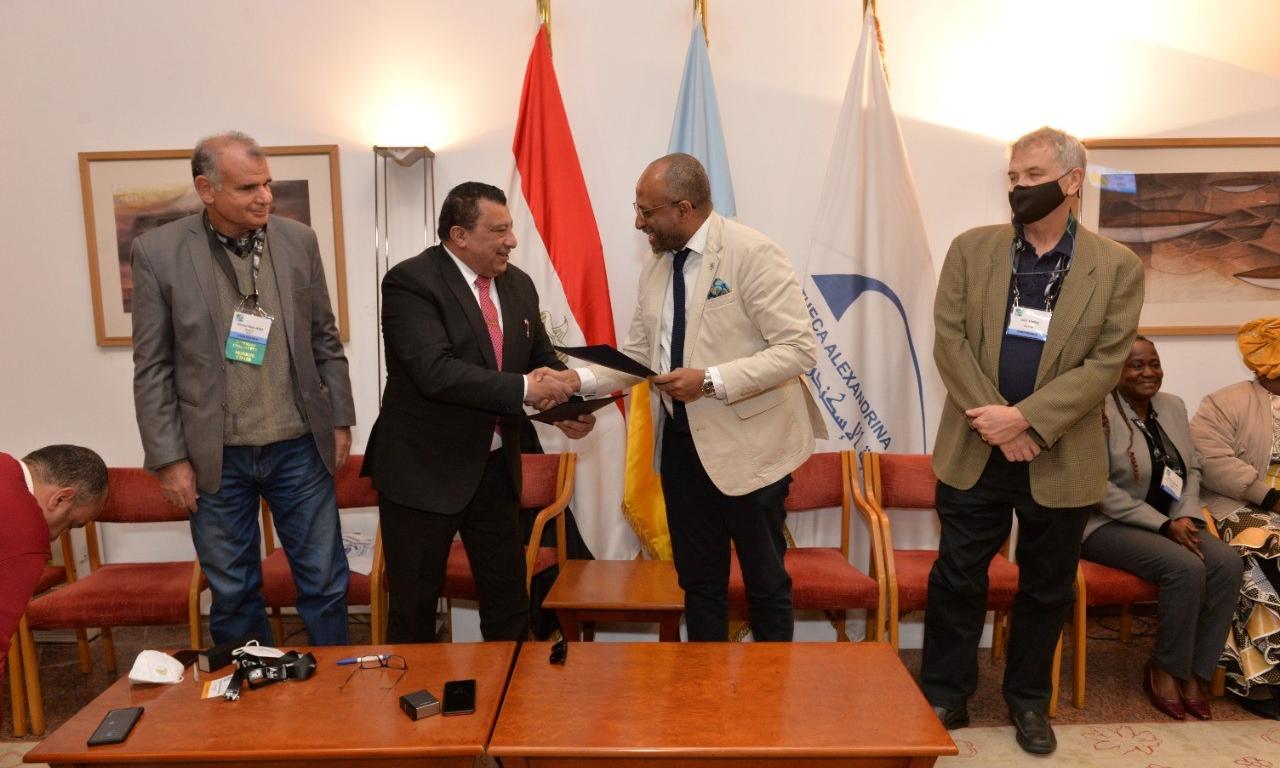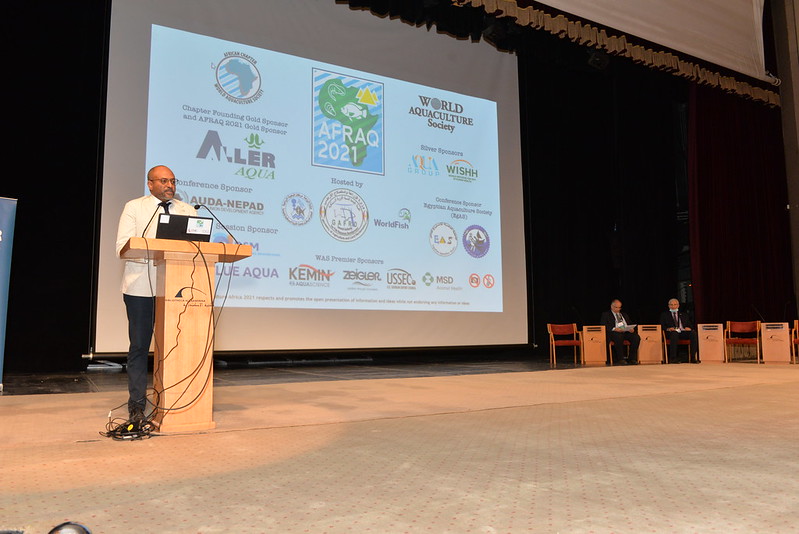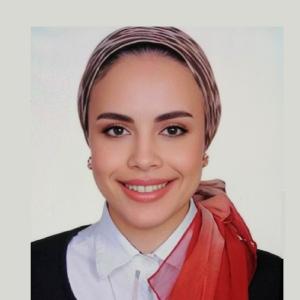
- WorldFish’s Interim Director General Essam Yassin Mohammed joined cooperative meetings at the international AFRAQ21 conference to deepen bilateral cooperation and advance climate-smart solutions to the aquaculture sector
- WorldFish signed a Memorandum of Understanding (MoU) with Suez University’s Faculty of Fish Resources in Egypt to foster collaboration in research and development within the aquaculture sector through WorldFish’s Fish for Africa Innovation Hub
The AFRAQ21 conference, hosted and organized by the Egyptian Ministry of Agriculture and Land Reclamation’s General Authority for Fish Resources and Development (GAFRD), WorldFish and partners, brought together national and international aquaculture researchers, practitioners, decision-makers and diverse stakeholders to discuss the latest research on sustainable aquaculture under the theme 'Sustainable Aquaculture - Feeding Africa.'
The international event took place in Alexandria, Egypt and comprised of trade exhibitions, industry forums, student sessions and satellite workshops aimed at discussing challenges and opportunities related to sustainable aquaculture development in Africa.
As part of its commitments to AFRAQ21, WorldFish took part in a number of key sessions to showcase its research, technology and innovation in aquaculture production, aiming to improve the social, economic and environmental sustainability of the sector.
WorldFish’s Interim Director General Essam Yassin Mohammed attended AFRAQ21 in person to strengthen partnerships and explore potential research collaborations to leverage aquatic foods to achieve the UN Sustainable Development Goals.
The aquaculture sectors offer inclusive solutions to boost food, nutrition and income security across the continent, but key investments are needed along supply chains to ensure equitable benefits are reaped from the sector—and vulnerable consumers who need nutrient-rich aquatic foods the most have access.
Deepening regional ties
Mohammed visited Egypt intent on deepening ties within the region, aiming to develop aquatic food systems and technologies like genetically improved farmed tilapia (GIFT) in collaboration with local partners.
To advance research partnerships, a Memorandum of Understanding (MoU) was signed with Osama Kaddour, the dean of Suez University’s Faculty of Fish Resources. Ahmed Nasr-Allah, country director of WorldFish in Egypt and Colin Shelly, WorldFish’s project leader, were in attendance during the signing.
This cooperation aims to strengthen collaboration between WorldFish’s Fish for Africa Innovation Hub (FAIH) and Suez University to prepare youth for a future in aquaculture while fostering collaboration in research and development in the sector.
The FAIH is a regional center dedicated to genetics research, training in best management practices and innovation and entrepreneurship in the African aquaculture sector. Opened in 1998, the research center has played an important role in the development of the aquaculture sector in both Egypt and sub-Saharan Africa, which will only be furthered through its new collaboration with Suez University.
The new MoU also aims to promote inter-organizational collaboration in climate-smart aquaculture to make the sector more resilient and safeguard food and nutrition security during times of shock.
“Through this MoU, we’re enhancing our expertise by exchanging knowledge on technologies and scientific research, executing a number of joint scientific research projectsand delivering training under the African Union Inter-African Bureau for Animal Resources (AU-IBAR) umbrella,” said Kaddour.
“The MoU aims to exchange scholarly information and conduct collaborative activities like joint conferences, workshops, lectures and seminars while reviewing other possible areas of cooperation, and fostering collaboration with the Faculty of Fish Resources,” said Nasr-Allah.
Strengthening bilateral cooperation

WorldFish’s presence among the partners of AFRAQ21 is a promising step towards strengthening ongoing and future collaboration at different regional levels.
In honor of Mohammed’s visit, FAIH invited representatives of the aquaculture field for a business dinner in Alexandria, with representatives from Alexandria and Ain Shams University attending. Mohammed, Nasr-Allah and Shelly were engaged in extensive discussions on prospective ongoing and future projects in aquatic food systems. This extensive ongoing cooperation is paving the way to mutual future opportunities and further bilateral projects.
Following the margins of similar events, Mohammed and Nasr-Allah additionally joined a discussion with Saad Moussa, director of foreign agriculture relations at the Ministry of Agriculture in Egypt, to propose ways to use climate-smart technologies to build resilience in the aquatic foods sector.
Developing innovative solutions for advancing smart technologies for climate change and sustaining aquatic food systems along supply chains paves the way for WorldFish to continue its goals in line with its 2030 Research and Innovation Strategy.
Cutting-edge knowledge, data and evidence on aquatic food systems in One CGIAR and the wider scientific and policy community will increasingly help in translating the scientific research on aquatic food systems into scalable solutions with an impact on human health and nutrition, climate change, environmental sustainability and other sustainable development issues.
